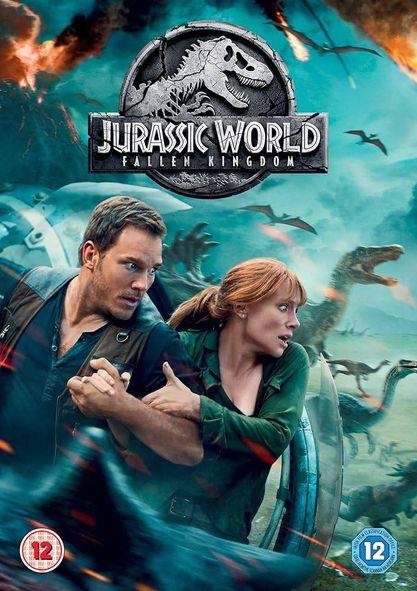Jurassic World: Fallen Kingdom (2018)

The Jurassic Park franchise has captivated audiences since the release of the original film in 1993. With its thrilling blend of science fiction, adventure, and horror, the series continues to evolve, bringing new stories and breathtaking visuals to fans around the world. One of the standout entries in this beloved saga is Jurassic World: Fallen Kingdom, directed by J.A. Bayona and released in 2018. This film not only expands on the mythology of dinosaurs but also explores deeper themes of ethics, responsibility, and the consequences of playing God.
Plot Overview
Set three years after the catastrophic events of Jurassic World (2015), the film opens with the Isla Nublar volcano, Mount Sibo, on the verge of eruption, threatening the lives of the remaining dinosaurs. Owen Grady (Chris Pratt) and Claire Dearing (Bryce Dallas Howard) return as the film’s protagonists, tasked with rescuing the dinosaurs from extinction once again. Their mission, however, is not just about saving these magnificent creatures; it raises critical questions about humanity’s role in the natural world.
As they embark on their rescue mission, Owen and Claire discover a nefarious plot that seeks to exploit the dinosaurs for profit. The film takes the audience on a rollercoaster ride of action and suspense, culminating in a thrilling climax that forces the characters to confront their own moral dilemmas.
Themes and Exploration
Jurassic World: Fallen Kingdom delves into the ethical implications of genetic engineering and the responsibilities that come with it. The film poses significant questions: Should humanity intervene in nature? What are the consequences of creating life, especially when profit drives these decisions? These themes resonate with current discussions about biotechnology and conservation, making the film relevant to contemporary audiences.
Additionally, the film introduces new characters that add depth to the narrative. The introduction of Dr. Henry Wu (BD Wong) and the enigmatic Mills (Rafe Spall) serves to enhance the complexity of the plot, showcasing the varying motivations behind the quest to save or exploit the dinosaurs.

Visual Spectacle
From the lush landscapes of Isla Nublar to the intense volcanic eruptions, the visual effects in Fallen Kingdom are nothing short of spectacular. The film utilizes cutting-edge CGI to bring the dinosaurs to life, showcasing their grandeur and vulnerability in a way that leaves audiences in awe. The cinematography captures both the beauty and terror of these prehistoric creatures, creating an immersive experience that keeps viewers on the edge of their seats.
Conclusion
Jurassic World: Fallen Kingdom is a thrilling addition to the Jurassic Park legacy, offering a compelling mix of action, drama, and ethical exploration. As the franchise continues to evolve, this film stands out for its ability to blend entertainment with meaningful discourse. It challenges audiences to reflect on their relationship with nature and the implications of humanity’s choices, all while delivering the pulse-pounding excitement that fans have come to expect from this iconic series.
Whether you’re a long-time fan of the franchise or new to the world of dinosaurs, Jurassic World: Fallen Kingdom promises an unforgettable cinematic adventure that will leave you eagerly anticipating the next chapter in the Jurassic saga.
Suggested videos for you:











